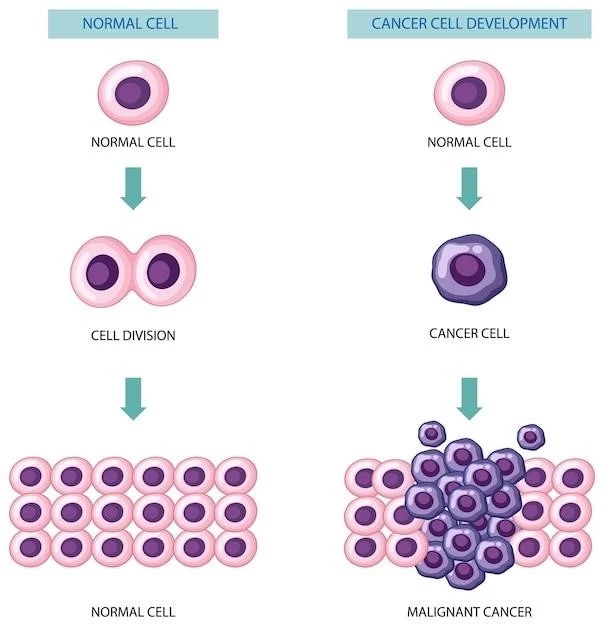Introduction to Mucopolysaccharidosis Type VII Sly Syndrome
Sly syndrome, also called mucopolysaccharidosis type VII (MPS-VII), is an autosomal recessive lysosomal storage disease caused by a deficiency of the enzyme β-glucuronidase. This leads to the accumulation of large sugar molecules called glycosaminoglycans in various tissues and organs.
Overview of Sly Syndrome
Sly syndrome, also known as mucopolysaccharidosis type VII (MPS-VII), is a rare autosomal recessive lysosomal storage disease that results from a deficiency of the enzyme β-glucuronidase. This enzyme deficiency leads to the accumulation of glycosaminoglycans in various tissues and organs, causing a range of debilitating symptoms and impacting the overall well-being of affected individuals.
Causes of Mucopolysaccharidosis Type VII Sly Syndrome
Mucopolysaccharidosis Type VII Sly Syndrome is caused by a deficiency of the enzyme β-glucuronidase, leading to the accumulation of glycosaminoglycans in various tissues.
Deficiency of Enzyme β-glucuronidase
Mucopolysaccharidosis Type VII Sly Syndrome is primarily caused by a deficiency of the enzyme β-glucuronidase, resulting in the accumulation of glycosaminoglycans in various tissues throughout the body. The lack of this crucial enzyme leads to the impairment of normal metabolic processes, leading to the characteristic symptoms and complications associated with the condition.

Symptoms and Clinical Presentation
Individuals with Mucopolysaccharidosis Type VII Sly Syndrome may experience a wide range of symptoms due to the accumulation of glycosaminoglycans in various tissues, impacting multiple organs.
The severity of symptoms in individuals with Mucopolysaccharidosis Type VII Sly Syndrome can vary widely, ranging from mild to severe manifestations due to the accumulation of glycosaminoglycans in different tissues and organs.
Diagnosis of Mucopolysaccharidosis Type VII Sly Syndrome
The diagnosis of Mucopolysaccharidosis Type VII Sly Syndrome involves biochemical tests and assessment of enzymatic activities to confirm the deficiency of β-glucuronidase enzyme.
Variability in Symptom Severity
The wide range of symptoms associated with Mucopolysaccharidosis Type VII Sly Syndrome can vary in severity, impacting individuals differently due to the accumulation of glycosaminoglycans in various tissues and organs.
Treatment Options
Enzyme replacement therapy is a common treatment option for Mucopolysaccharidosis Type VII Sly Syndrome, aiming to replace the deficient enzyme in affected individuals.
Enzyme Replacement Therapy
Enzyme replacement therapy is a primary treatment approach for Mucopolysaccharidosis Type VII Sly Syndrome, aiming to supply the deficient enzyme and alleviate the buildup of glycosaminoglycans in affected individuals.
Prognosis and Disease Progression
The clinical course of Sly Syndrome varies widely among individuals, with some experiencing a more severe progression of symptoms affecting multiple organs over time.
Clinical Course of Sly Syndrome
The clinical course of Sly Syndrome presents a variable progression among individuals, with some experiencing severe manifestations affecting multiple organs over time due to the accumulation of glycosaminoglycans.
Epidemiology and Prevalence
Estimated birth prevalence of Mucopolysaccharidosis Type VII Sly Syndrome varies from 0.02 to 0.24 per 100٫000 live births٫ indicating its rare occurrence.
Estimated Birth Prevalence
Mucopolysaccharidosis Type VII Sly Syndrome has an estimated birth prevalence varying from 0.02 to 0.24 per 100٫000 live births٫ indicating its rare occurrence.
Genetic Basis of Mucopolysaccharidosis Type VII Sly Syndrome
Inherited deficiency of the lysosomal enzyme β-glucuronidase is the genetic basis of Mucopolysaccharidosis Type VII Sly Syndrome, leading to the accumulation of glycosaminoglycans.
Inherited Deficiency of Lysosomal Enzyme β-glucuronidase
Mucopolysaccharidosis Type VII Sly Syndrome is attributed to an inherited deficiency in the lysosomal enzyme β-glucuronidase, resulting in the accumulation of glycosaminoglycans and subsequent clinical manifestations.
Impact on Tissues and Organs
The accumulation of glycosaminoglycans in various tissues due to the deficiency of the lysosomal enzyme β-glucuronidase affects multiple organs, leading to a range of clinical manifestations.
Accumulation of Glycosaminoglycans in Various Tissues
The accumulation of glycosaminoglycans in various tissues in Mucopolysaccharidosis Type VII Sly Syndrome results in the impairment of normal cellular function and contributes to the clinical manifestations observed in affected individuals.

Research and Developments
Clinical trials and pipeline products are advancing in the field of Mucopolysaccharidosis Type VII Sly Syndrome management, showing promising developments for the future.
Clinical Trials and Pipeline Products
The advancement of clinical trials and pipeline products in the management of Mucopolysaccharidosis Type VII Sly Syndrome is showing promising developments for future treatment options, potentially improving outcomes for affected individuals.
Case Studies and Atypical Features
Distinctive manifestations and evolution over time are observed in individuals with Mucopolysaccharidosis Type VII Sly Syndrome, showcasing the variable nature of the condition.
Distinctive Manifestations and Evolution Over Time
Individuals with Mucopolysaccharidosis Type VII Sly Syndrome may exhibit distinctive manifestations and experience an evolution of symptoms over time, highlighting the variability and complexity of the condition.
Historical Background of Sly Syndrome
Initial discovery and naming after Dr. William S. Sly, an American biochemist and physician, marked the identification of this rare metabolic disorder.
Initial Discovery and Naming after Dr. William S. Sly
Mucopolysaccharidosis Type VII Sly Syndrome was first described in 1973 by Dr. William S. Sly, an American biochemist and physician, who identified the deficiency of the enzyme β-glucuronidase in a patient exhibiting clinical and radiological findings associated with the disorder.
Management Strategies and Caregiver Surveys
Pathway to diagnosis and burden of illness are significant aspects assessed in caregiver surveys for Mucopolysaccharidosis Type VII Sly Syndrome management strategies.
Pathway to Diagnosis and Burden of Illness
Caregiver surveys for Mucopolysaccharidosis Type VII Sly Syndrome management strategies often evaluate the pathway to diagnosis and the burden of illness experienced by patients and their families, providing valuable insights for medical and support interventions.
Impostor Syndromes and Psychological Impact
Psychological effects on patients and families with Mucopolysaccharidosis Type VII Sly Syndrome can lead to impostor syndromes and other challenges that impact well-being and coping strategies.
Psychological Effects on Patients and Families
Patients and families affected by Mucopolysaccharidosis Type VII Sly Syndrome may experience psychological effects, including impostor syndromes, emotional challenges, and coping difficulties, that can impact their well-being and quality of life.
Global Perspective on Enzyme Replacement Therapy
Unprecedented growth in the Enzyme Replacement Therapy industry is shaping the management landscape for Mucopolysaccharidosis Type VII Sly Syndrome worldwide.
Unprecedented Growth in the Enzyme Replacement Therapy Industry
The enzyme replacement therapy industry is experiencing unprecedented growth, revolutionizing the approach to managing Mucopolysaccharidosis Type VII Sly Syndrome worldwide with innovative treatments and advancements.
Conclusion and Future Directions
Promising developments and challenges lie ahead in the management of Mucopolysaccharidosis Type VII Sly Syndrome, paving the way for innovative approaches and enhanced care for affected individuals.
Promising Developments and Challenges Ahead
Promising developments in treatments for Mucopolysaccharidosis Type VII Sly Syndrome are paving the way for enhanced care, but challenges persist in ensuring widespread access to these advancements, addressing the variability of disease progression, and supporting affected individuals and their families in the face of this rare genetic disorder;
